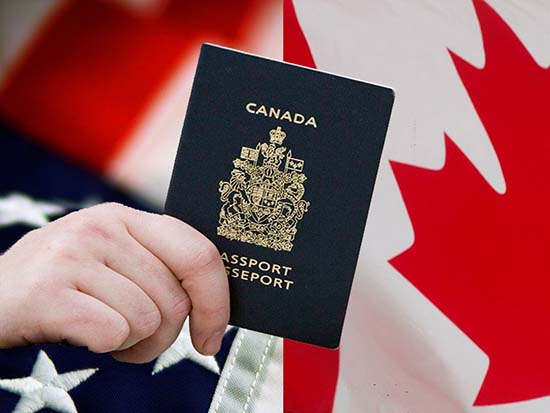
Applying for a Discretionary Grant of Canadian Citizenship: Complete Guide to Required Documents
Canada has introduced interim measures to help individuals known as “lost Canadians” reclaim their citizenship. These measures allow certain people—often children or grandchildren of Canadian citizens born outside Canada—to apply for a discretionary grant of Canadian citizenship without waiting for future amendments to the Citizenship Act.
Below is a detailed breakdown of the documentation and process required to apply for this grant.
Key Highlights
- Who Qualifies: Individuals who were born outside Canada to a Canadian parent or grandparent and never obtained Canadian citizenship.
- Purpose: To allow eligible applicants to secure citizenship before new legislative amendments take effect.
- Application Options: Applications can be submitted online or on paper, depending on preference and eligibility.
Core Documents Required for All Applicants
Regardless of your specific situation, every applicant must include the following in their application:
- Application form (CIT 0001) – Proof of Citizenship Certificate form.
- Photographs – Two original photos (paper application) or one colour digital photo (online), meeting IRCC specifications.
- Identification – Copies of two valid government-issued IDs, with at least one showing a photo.
- Proof of Payment – Receipt of citizenship application fees.
Additional Documents Based on Personal Circumstances
Depending on individual circumstances, the following documents may be needed:
| Situation | Required Document(s) |
|---|---|
| Applicant using a representative | Use of a Representative form (IMM 5476) |
| Requesting a gender/sex change | Statutory Declaration – Change of Sex or Gender form |
| Changed legal name | Proof of legal name change (e.g., marriage certificate, court order, adoption order, or divorce decree). |
Special Scenarios Requiring Extra Proof
Some applicants must provide additional documents depending on how they became eligible for citizenship:
Scenario 1: Born Outside Canada to a Canadian Parent
Applicants must provide:
- Foreign birth certificate showing the name of the Canadian parent, issued by the government of the birth country.
- Proof of parent’s Canadian citizenship, such as:
- Provincial or territorial birth certificate.
- Canadian citizenship or naturalization certificate.
- Certificate of Registration of Birth Abroad (RBA).
- Certificate of Retention of Canadian Citizenship.
- British naturalization certificate issued in Canada or Newfoundland and Labrador.
If the Canadian parent is not listed on the birth certificate, also include:
- Supporting documents proving the parent’s identity (e.g., pre-birth orders, hospital records, court orders, or surrogacy agreements).
- A written explanation for any missing or changed parent details.
Scenario 2: Former British Subject with Pre-1947 Residence
For applicants who were British subjects and lived in Canada before January 1, 1947, or in Newfoundland and Labrador before April 1, 1949, the following are required:
- Long-form birth certificate from the country of birth.
- Proof of British subject status (e.g., birth certificate or British naturalization certificate).
- Proof of landed immigrant status in Canada (e.g., immigration document, stamped passport).
- Proof of residence in Canada (or Newfoundland and Labrador) before the relevant date.
Women married before January 1, 1947, must also include:
- Marriage certificate.
- Husband’s nationality documents (e.g., birth certificate, naturalization certificate, or immigration records).
Scenario 3: Women Who Lost British Subject Status by Marriage
Applicants in this group need to submit:
- Long-form birth certificate.
- Marriage certificate.
- Proof of husband’s British nationality before the cutoff dates.
- Proof of acquisition of British subject status (if applicable).
- Proof of landed immigrant status in Canada.
IRCC Application Process
Once all documents are gathered, applicants must:
- Submit their application (online or paper) to Immigration, Refugees and Citizenship Canada (IRCC).
- Wait for IRCC to review the file and confirm eligibility.
- If eligible, IRCC will:
- Send a letter confirming if the first-generation limit applies.
- Invite the applicant to request a discretionary grant of citizenship.
- IRCC may request additional documents during processing.
Applicants who meet certain conditions (such as urgent travel needs) can also request urgent processing.
Quick Reference Table – Document Checklist
| Document Category | Examples of Required Proof |
|---|---|
| Core Documents | Application form (CIT 0001), ID (two pieces), photographs, proof of payment |
| Parentage Proof | Canadian parent’s citizenship certificate, birth abroad certificate |
| British Subject Proof | Long-form birth certificate, British naturalization certificate |
| Residence Proof | Immigration records, stamped passport, permanent resident documents |
| Special Circumstances | Marriage certificate, legal name change proof, gender change declaration |
Key Takeaway
Individuals qualifying as “lost Canadians” can apply now to secure Canadian citizenship through a discretionary grant. Preparing a complete and well-documented application—tailored to your personal scenario—will help avoid delays and ensure a smooth process with IRCC.
For a consultation about Immigration options, reach out to the CAD IMMIGRATION today!




